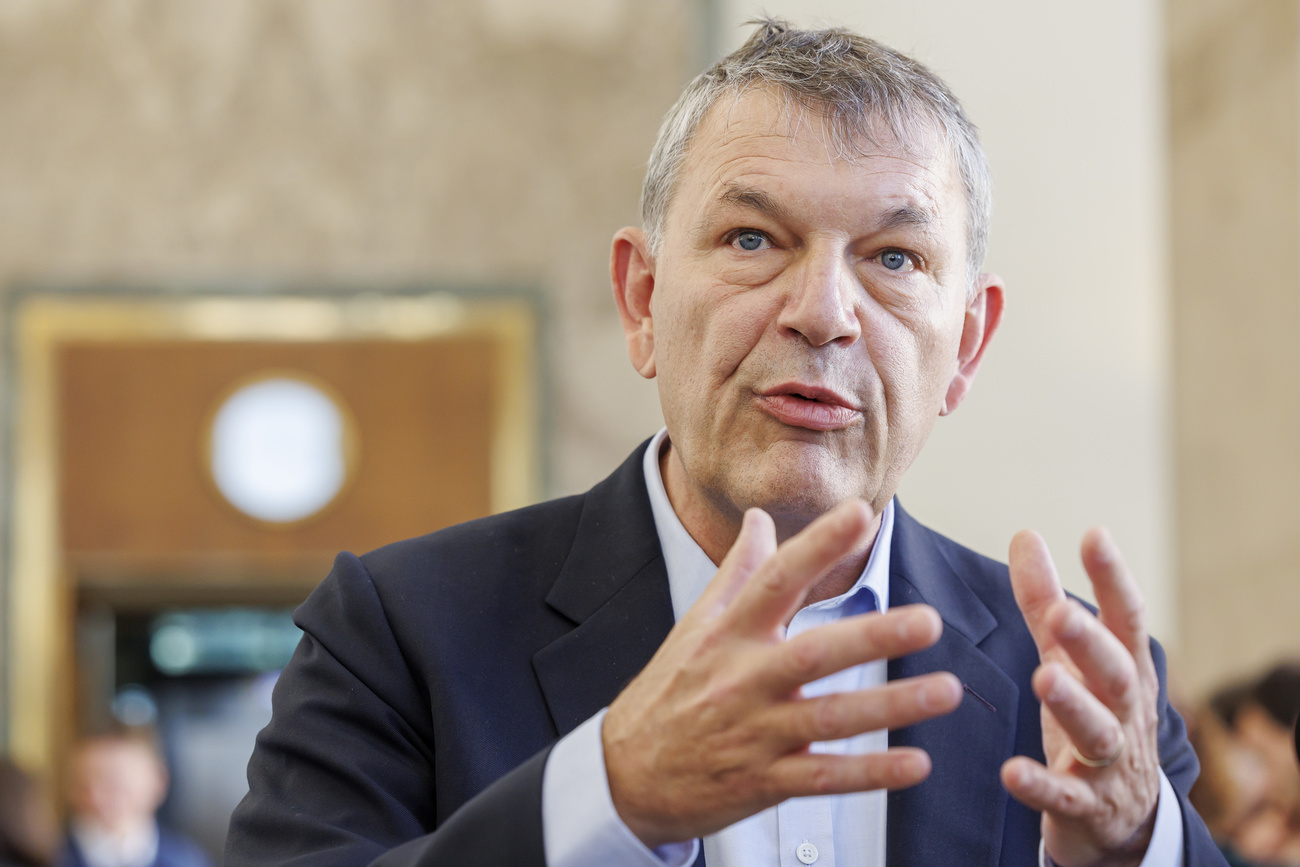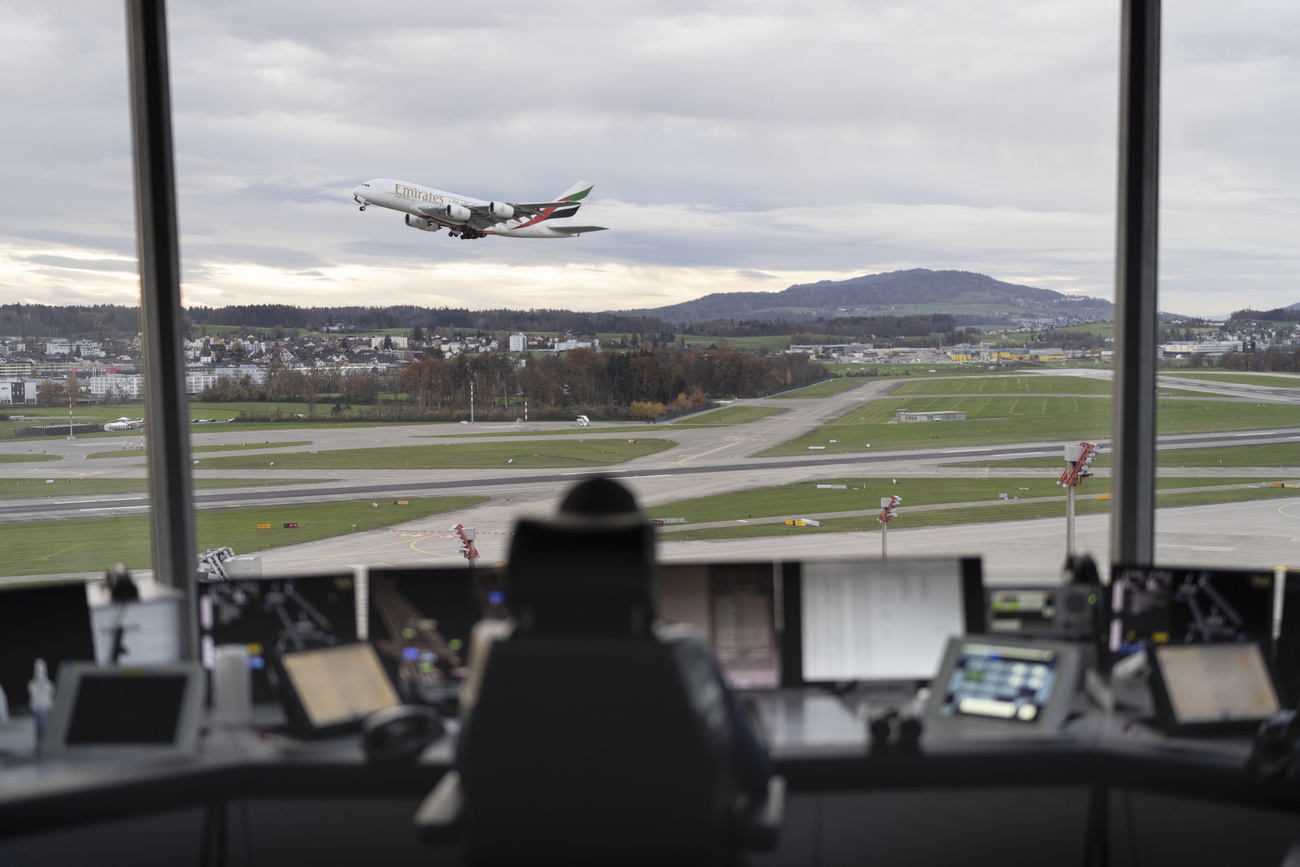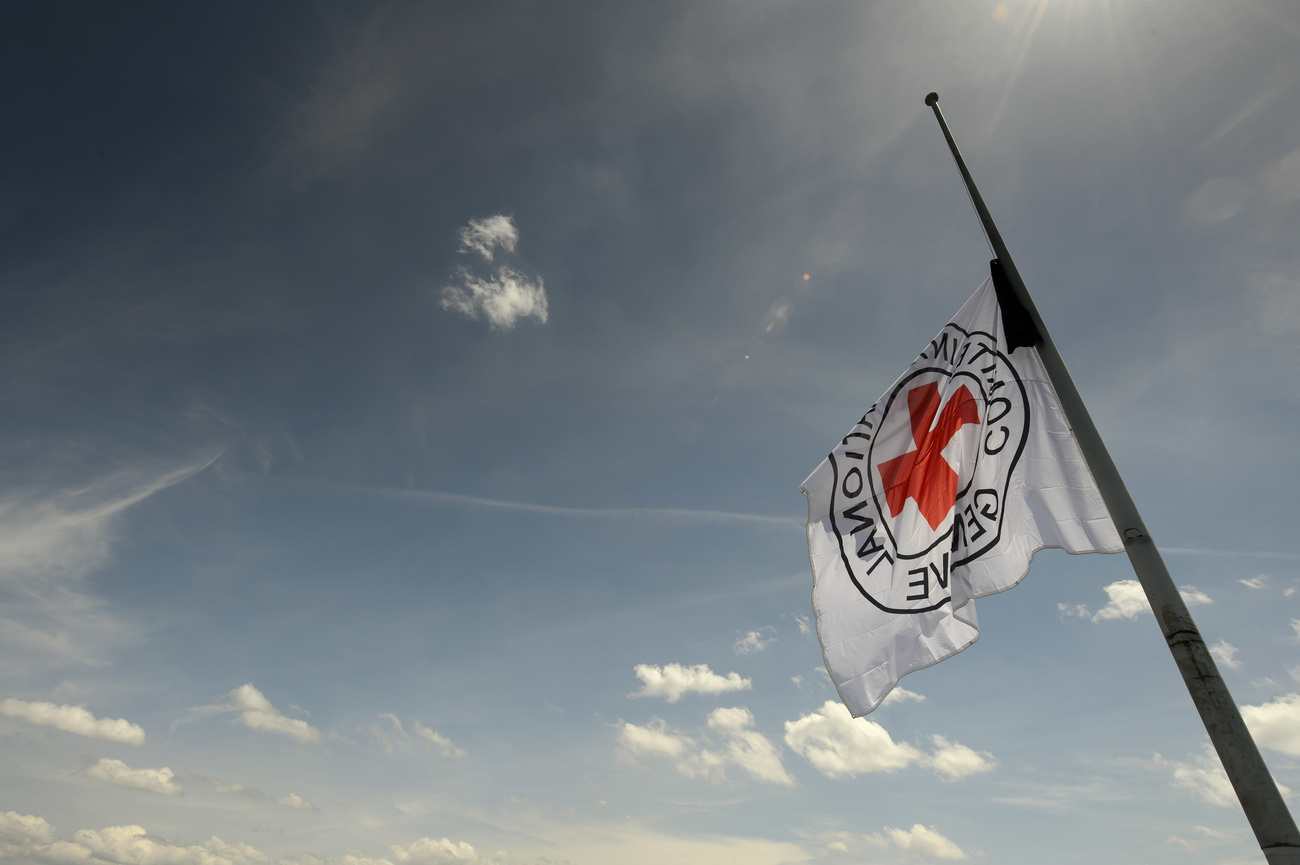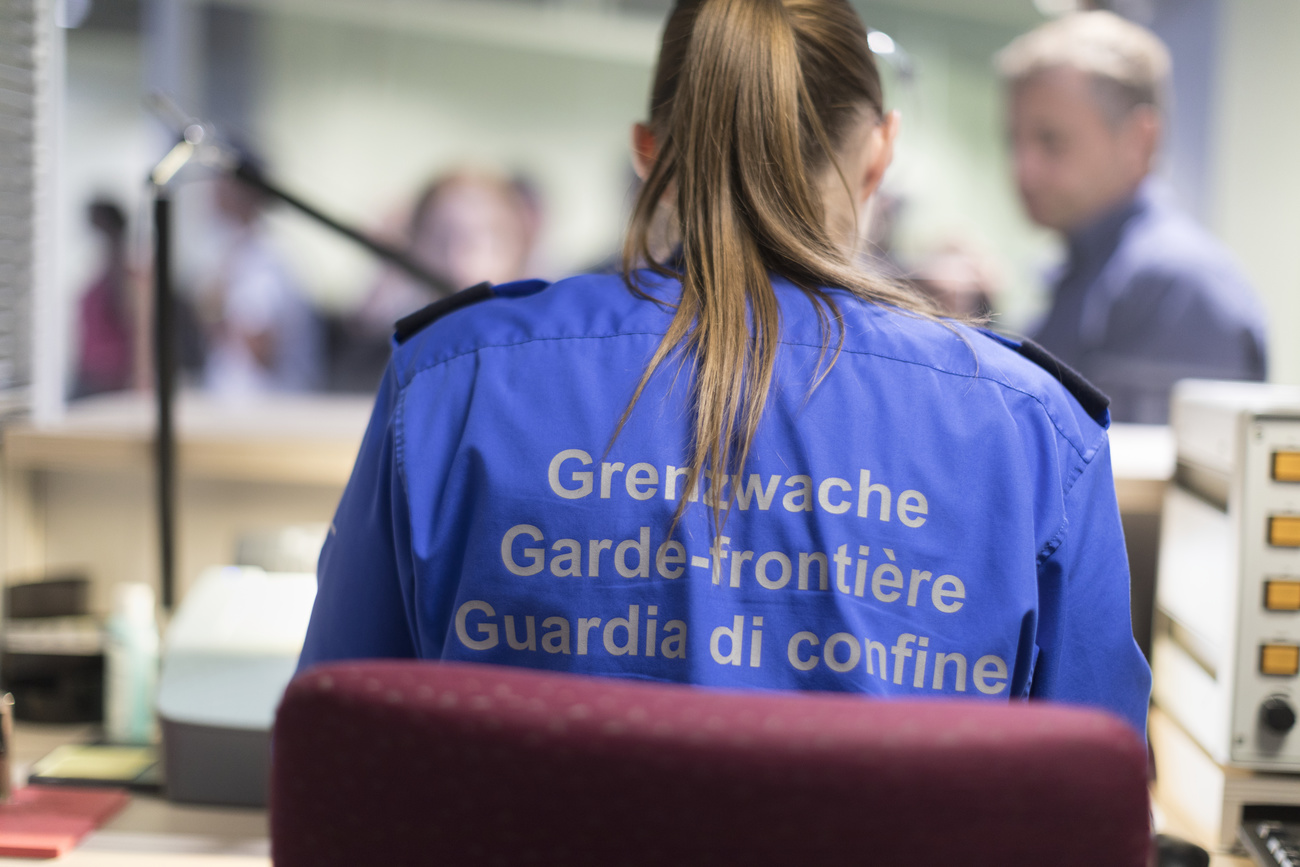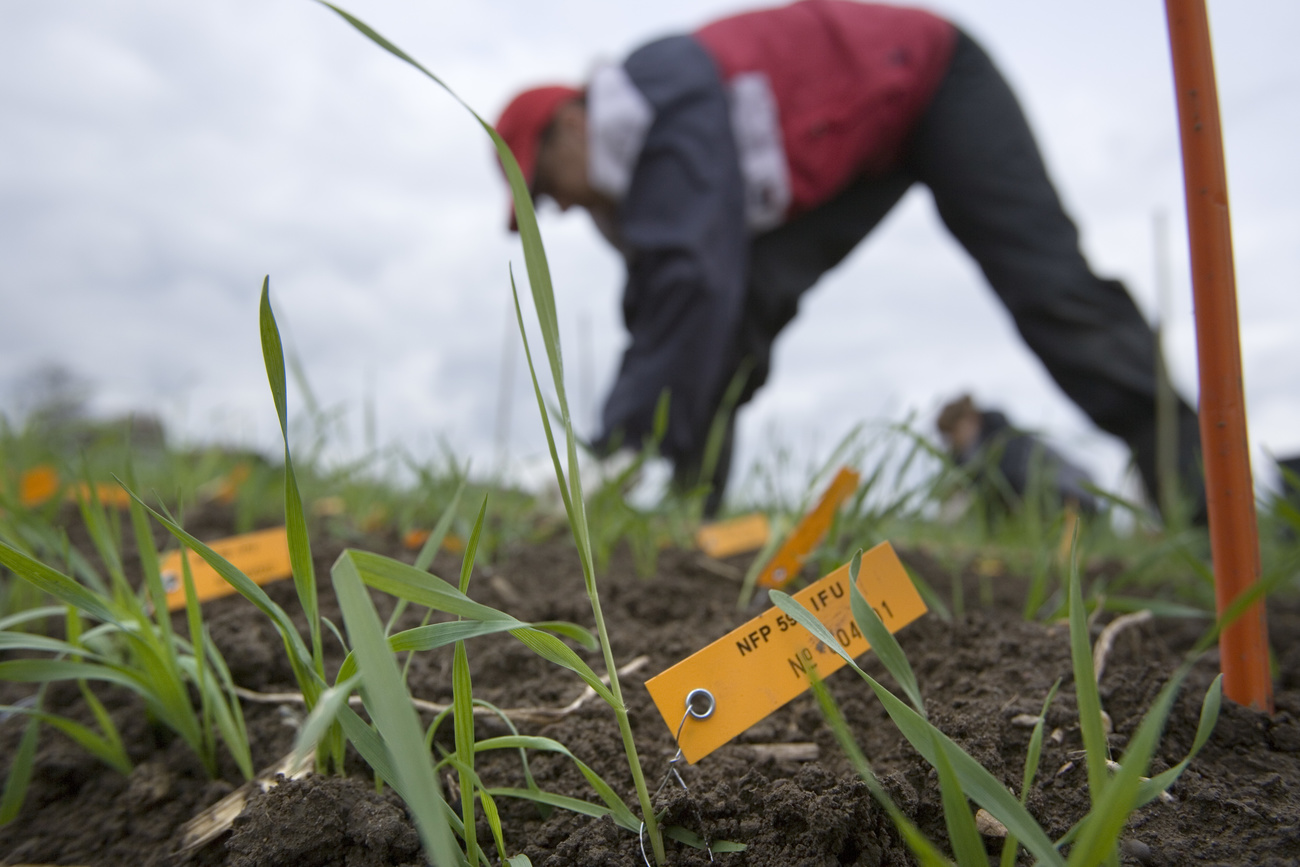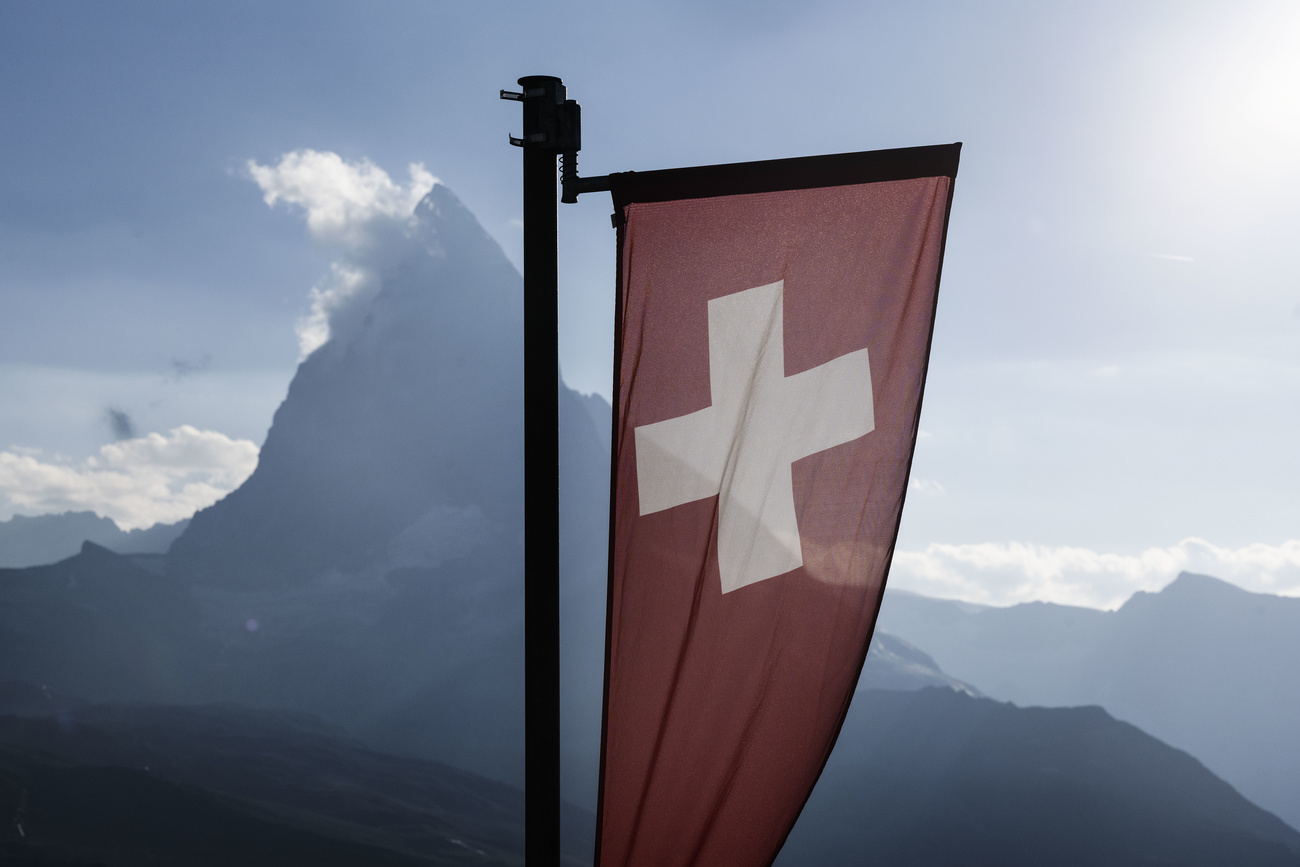UNRWA head Lazzarini met with Swiss politicians.
KEYSTONE/© KEYSTONE / SALVATORE DI NOLFI
The director of the UN Relief and Works Agency for Palestine Refugees in the Near East (UNRWA), Philippe Lazzarini, has called on Switzerland and the European Union to resume their support for the organisation.
Do you want to read our weekly top stories? Subscribe here.
“It is important that Switzerland continues to be the partner it has always been,” Lazzarini told the media after meeting with Switzerland’s Foreign Affairs Committee of the National Council (FAC-N).
The president of FAC-N, Laurent Wehrli, expressed his satisfaction. “The aim was to be able to speak to each other directly and without filters,” he told the Keystone-SDA news agency.
+ What are the allegations against UNRWA?
The Federal Department of Foreign Affairs (FDFA) has suspended its annual contribution of CHF20 million after allegations that 12 UNRWA employees were involved in the massacre in Israel last October. The FDFA is awaiting the final report on UNRWA, which is expected on April 20.
Waiting for report
An investigation has also been launched into employees who are allegedly members of Hamas. This is also likely to decide whether or not payments from Switzerland will be resumed. The Commissioner General of UNRWA explained this procedure to the members of the APK-N.
+ Swiss parliament divided on UNRWA aid
Several parliamentarians said that they wanted to wait for the results. The Federal Council will then make a proposal that will be submitted for consultation to the foreign affairs committees of the House of Representatives and the Senate.
Since December, humanitarian organisations in the Middle East have only been able to receive support following such a procedure. Several non-governmental organisations (NGOs) have called on Switzerland to resume its funding from April.
In view of the humanitarian emergency, Wehrli believes that the Federal Council could proceed in two stages, especially if the UNRWA report is delayed. The government “could come up with a proposal for emergency aid in Gaza as early as April”. In his opinion, questions relating to the financing of the training of Palestinians by UNRWA in several countries could be clarified afterwards.
Other countries resumed support
Lazzarini said he had also explained to parliamentarians the reasons for smear campaigns against his agency, which were not necessarily linked to its presence in Gaza. He also recalled that certain UNRWA activities are considered a “threat” by Hamas because they prioritise human rights.
According to the director, the situation is less dramatic today than it was a month ago. UNRWA’s funding is secured until the end of May. Staff salaries could be paid in March and April.
The European Commission has resumed its support, as have the Nordic countries, Canada and Australia. Some European countries have even increased their contributions in view of the agency’s difficulties. The Gulf States are also supporting UNRWA.
US funds stay frozen
The problem is that the United States, as the largest donor, has frozen its aid until March 2025. At the same time, they called on the others to endeavour to ensure that the UN agency can continue its work. “We will have to mobilise even more countries,” said Lazzarini. The loss of the US poses an existential threat to UNRWA.
More
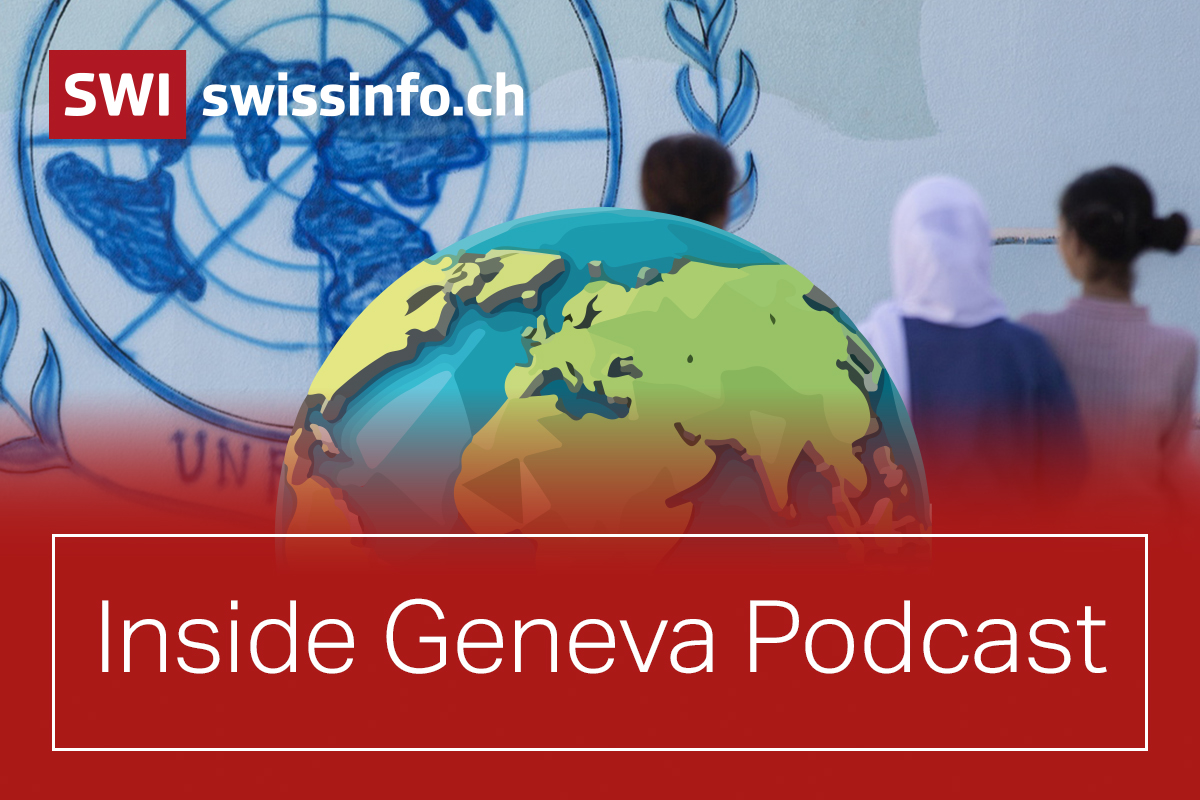
More
Inside Geneva: what’s the future of UNRWA?
A few days ago, Lazzarini was denied access to the Gaza Strip without receiving an explanation from Israel. In addition, Israel no longer allows UNRWA to distribute aid in the north of the territory. Tens of thousands of people are still dependent on aid in this part of the Gaza Strip.
Several people have already died due to the lack of food. According to Lazzarini, the aid is “completely inadequate compared to the immense need”. More than half of the population is not sufficiently supplied with food.
This news story has been written and carefully fact-checked by an external editorial team. At SWI swissinfo.ch we select the most relevant news for an international audience and use automatic translation tools such as DeepL to translate it into English. Providing you with automatically translated news gives us the time to write more in-depth articles.
If you want to know more about how we work, have a look here, and if you have feedback on this news story please write to english@swissinfo.ch.
Translated from German by DeepL/mga
